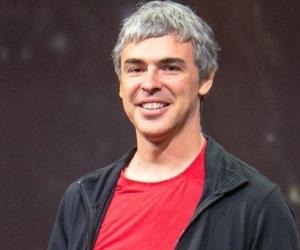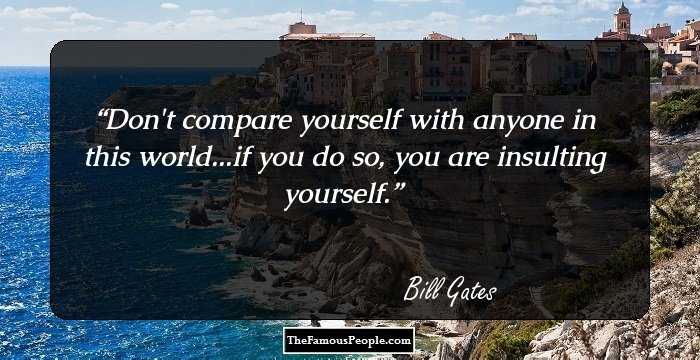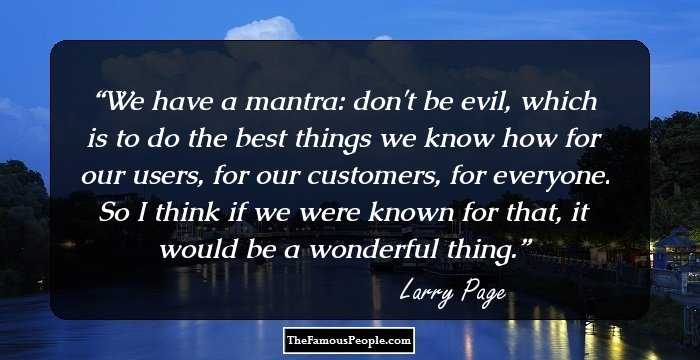
We have a mantra: don't be evil, which is to do the best things we know how for our users, for our customers, for everyone. So I think if we were known for that, it would be a wonderful thing.
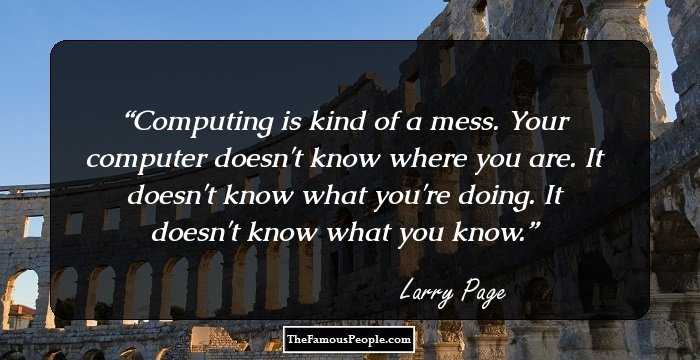
Computing is kind of a mess. Your computer doesn't know where you are. It doesn't know what you're doing. It doesn't know what you know.
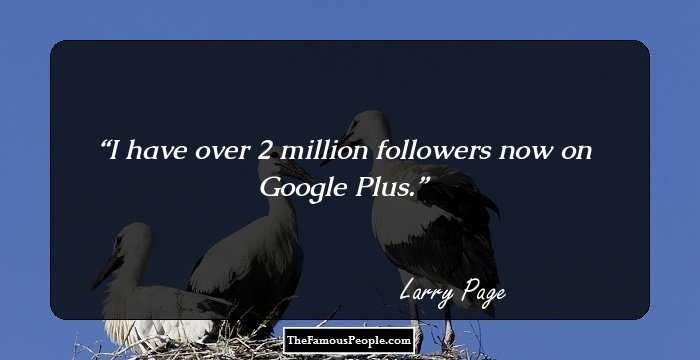
I have over 2 million followers now on Google Plus.
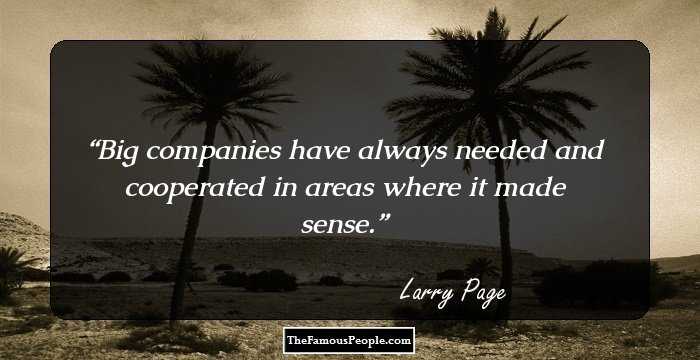
Big companies have always needed and cooperated in areas where it made sense.
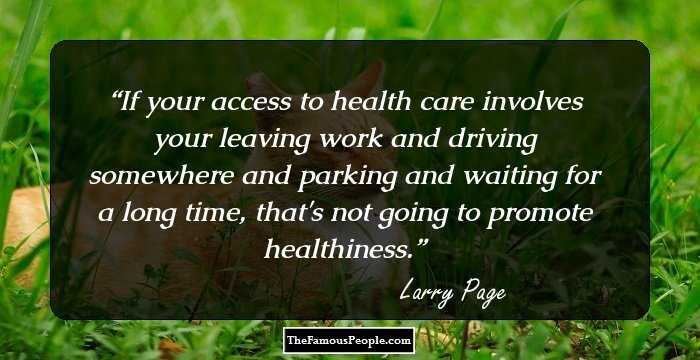
If your access to health care involves your leaving work and driving somewhere and parking and waiting for a long time, that's not going to promote healthiness.
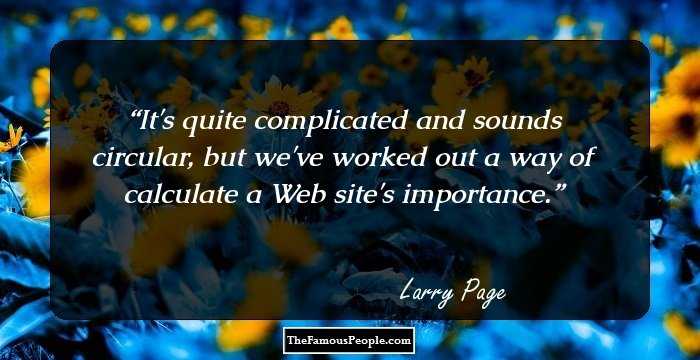
It's quite complicated and sounds circular, but we've worked out a way of calculate a Web site's importance.
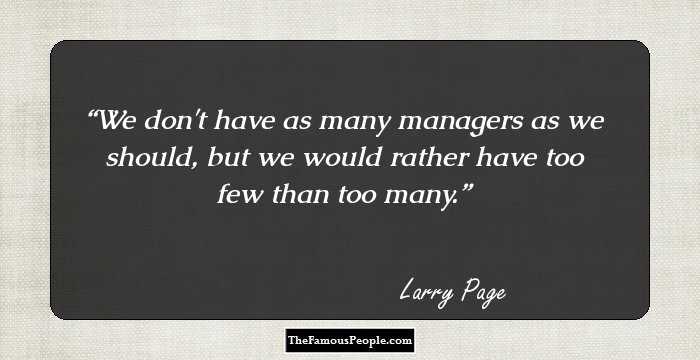
We don't have as many managers as we should, but we would rather have too few than too many.
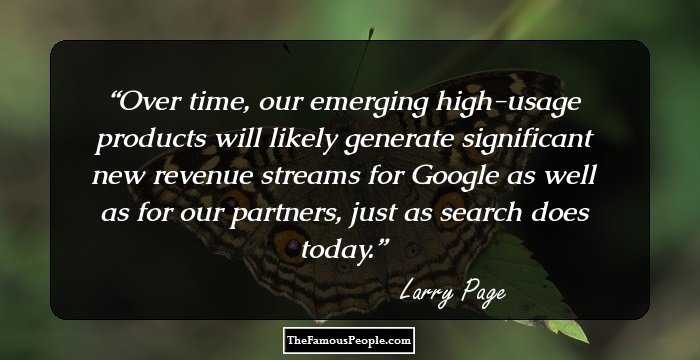
Over time, our emerging high-usage products will likely generate significant new revenue streams for Google as well as for our partners, just as search does today.
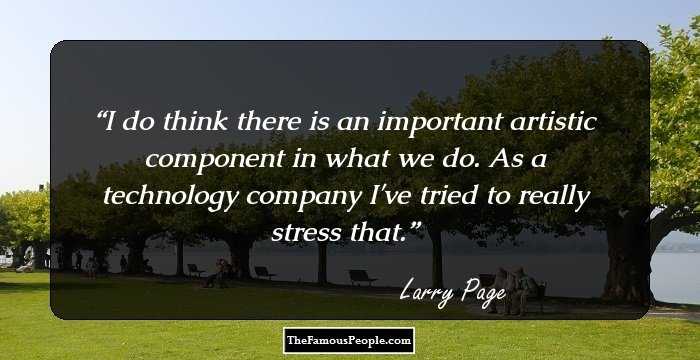
I do think there is an important artistic component in what we do. As a technology company I've tried to really stress that.
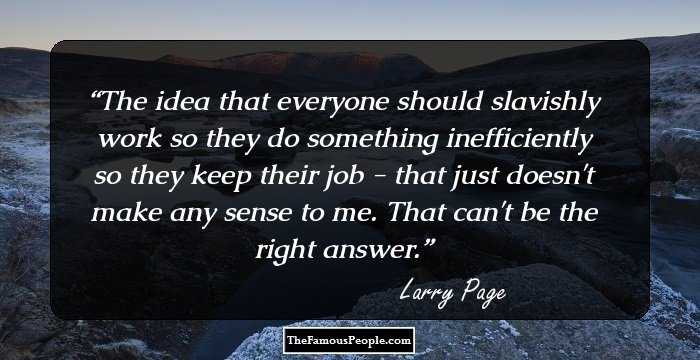
The idea that everyone should slavishly work so they do something inefficiently so they keep their job - that just doesn't make any sense to me. That can't be the right answer.
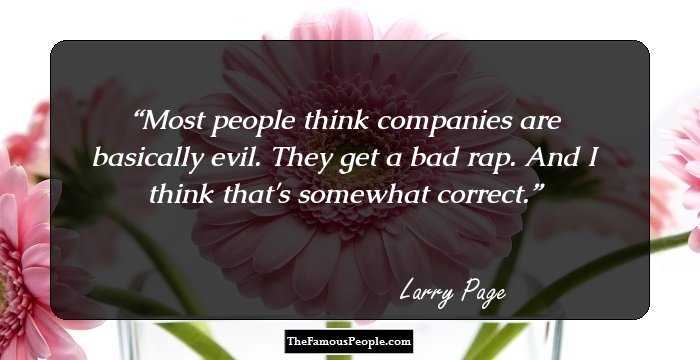
Most people think companies are basically evil. They get a bad rap. And I think that's somewhat correct.

I really like using my Samsung (005930:KS) tablet. I previously used the Motorola Xoom for a while and liked that.

I can't really comment on rumors.
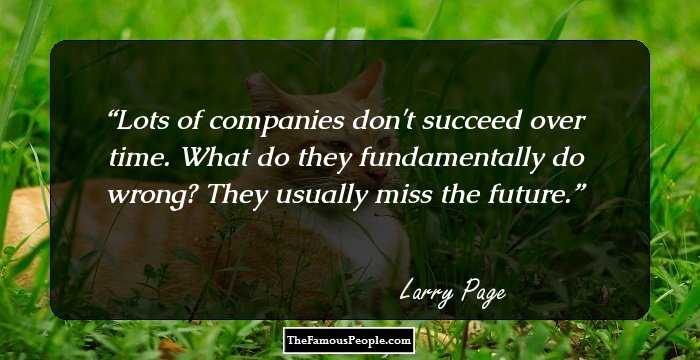
Lots of companies don't succeed over time. What do they fundamentally do wrong? They usually miss the future.
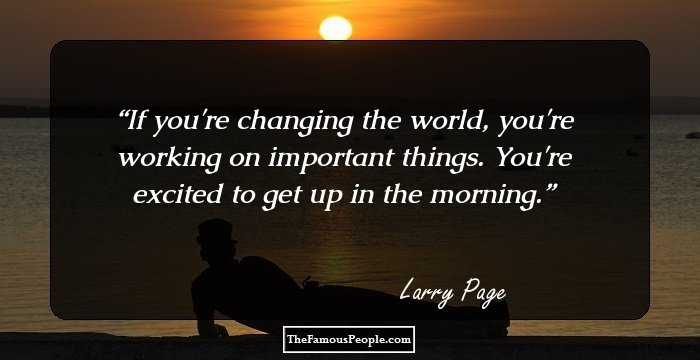
If you're changing the world, you're working on important things. You're excited to get up in the morning.
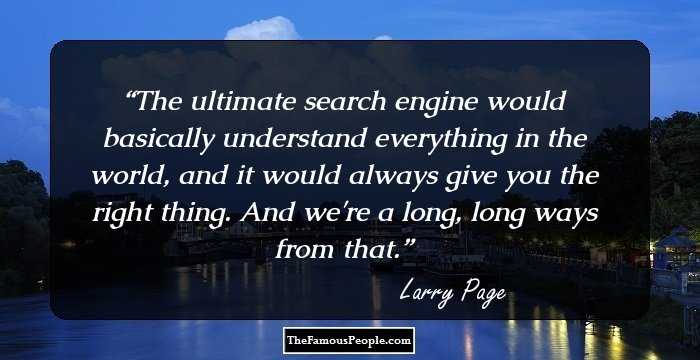
The ultimate search engine would basically understand everything in the world, and it would always give you the right thing. And we're a long, long ways from that.
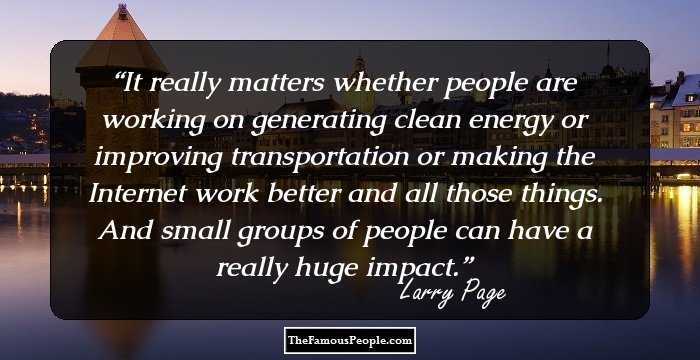
It really matters whether people are working on generating clean energy or improving transportation or making the Internet work better and all those things. And small groups of people can have a really huge impact.
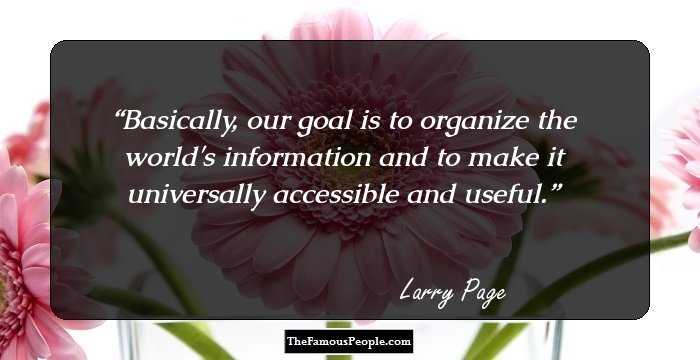
Basically, our goal is to organize the world's information and to make it universally accessible and useful.
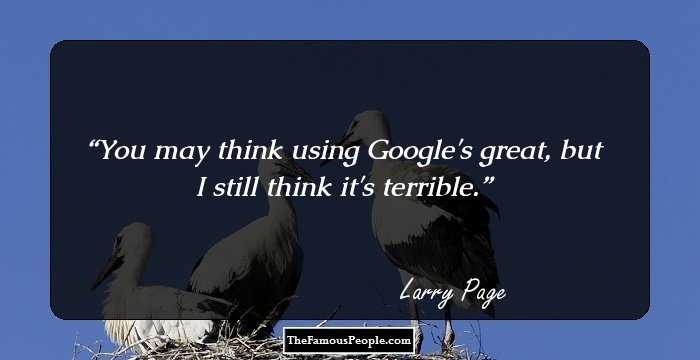
You may think using Google's great, but I still think it's terrible.
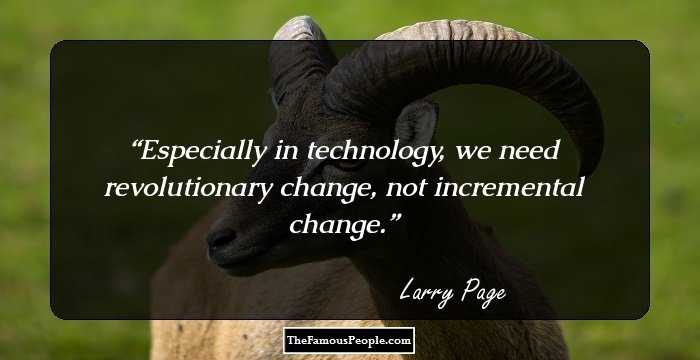
Especially in technology, we need revolutionary change, not incremental change.
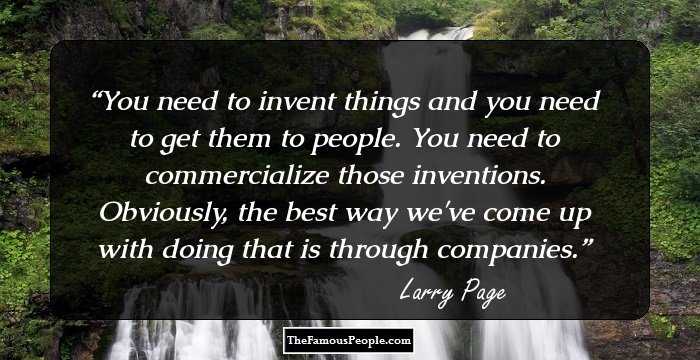
You need to invent things and you need to get them to people. You need to commercialize those inventions. Obviously, the best way we've come up with doing that is through companies.
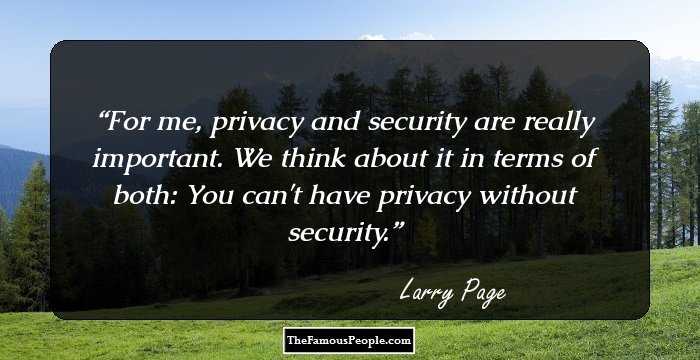
For me, privacy and security are really important. We think about it in terms of both: You can't have privacy without security.
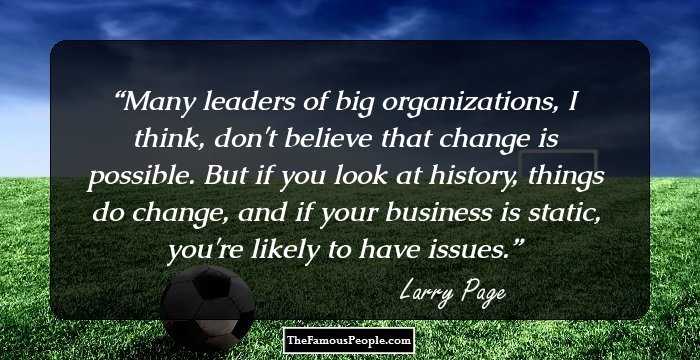
Many leaders of big organizations, I think, don't believe that change is possible. But if you look at history, things do change, and if your business is static, you're likely to have issues.
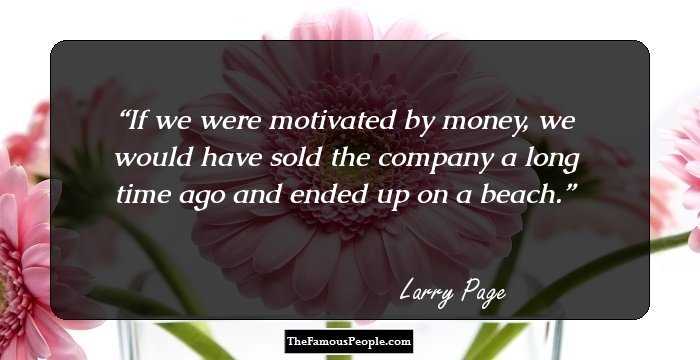
If we were motivated by money, we would have sold the company a long time ago and ended up on a beach.
I have always believed that technology should do the hard work - discovery, organization, communication - so users can do what makes them happiest: living and loving, not messing with annoying computers! That means making our products work together seamlessly.
Invention is not enough. Tesla invented the electric power we use, but he struggled to get it out to people. You have to combine both things: invention and innovation focus, plus the company that can commercialize things and get them to people.
You know what it's like to wake up in the middle of the night with a vivid dream? And you know that if you don't have a pencil and pad by the bed, it will be completely gone by the next morning. Sometimes it's important to wake up and stop dreaming. When a really great dream shows up, grab it.
My job as a leader is to make sure everybody in the company has great opportunities, and that they feel they're having a meaningful impact and are contributing to the good of society. As a world, we're doing a better job of that. My goal is for Google to lead, not follow that.
We want to build technology that everybody loves using, and that affects everyone. We want to create beautiful, intuitive services and technologies that are so incredibly useful that people use them twice a day. Like they use a toothbrush. There aren't that many things people use twice a day.
We're at maybe 1% of what is possible. Despite the faster change, we're still moving slow relative to the opportunities we have. I think a lot of that is because of the negativity... Every story I read is Google vs someone else. That's boring. We should be focusing on building the things that don't exist.

